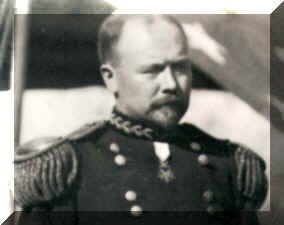|
BACKGROUND: Philippine rebels had been waging guerrilla warfare against Spanish colonialism long before the U.S. became involved. Their exiled leader, Emilio Aquinaldo, met with the American consul in Singapore as the U.S. Army headed towards the Philippines. Admiral Dewey invited Aquinaldo back to the Philippines in hopes he could provide intelligence regarding the defenses of Manila Bay. At the same time, Aquinaldo believed the United States would help the "Insurrectos" gain independence from Spain. But the U.S. government had another idea. The United States’ drive to extend influence across the Pacific instigated a Philippine American War. Fighting broke out on Feb. 4, 1899, and eventually far exceeded that against Spain. At the outbreak, the U.S. had only a small amount of troops in the Philippines compared to Aquinaldo’s 40,000 fighters. American troop strength increased until 1901 when it numbered 75,000. Nearly all of the troops sent to fight in the Philippines spent time at the Presidio. 
A Sign of the Times "Little Brown Brother" was a term used by Americans to refer to Filipinos. The term was coined by William Howard Taft, the first American Governor-General of the Philippines (1901-1904) and later the 27th President of the United States. The term was not originally intended to be derogatory, nor an ethnic slur; instead, in the words of historian Creighton Miller, it is a reflection of "paternalist racism", shared also by Theodore Roosevelt.[47] Taft told President McKinley that "our little brown brothers" would need "fifty or one hundred years" of close supervision "to develop anything resembling Anglo-Saxon political principles and skills." "Fillipinos are moved by similar considerations to those which move other men."[48]The phrase "Little Brown Brother" drew some sneers from both Americans and Filipinos, however,[49] due to the bloodshed of the Philippine-American War. Although the United States government declared the "insurgency" was over by 1902, guerilla resistance movements against the American occupation continued until 1913. - Wikipedia The Philippine War - A Conflict of Conscience Charles Young - Buffalo Soldier |
Last updated: February 28, 2015
